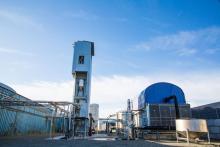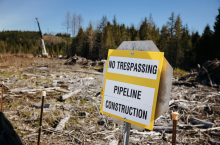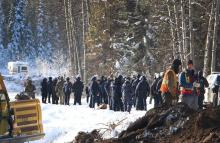One can only imagine the positive buzz these days inside the boardrooms of Canada’s oil companies, as they rake in record profits and plan major expansions of their oil production.
Jan. 15, 2024
A shadowy new organization attacking the climate efforts of Canadian cities is infiltrating Google searches and ads in the New York Times and other publications online.
The group — Voice for Energy — bills itself as a platform for Canadians to "speak up" against municipalities implementing measures to reduce or ban natural gas to "protect" people’s so-called "energy choice."










